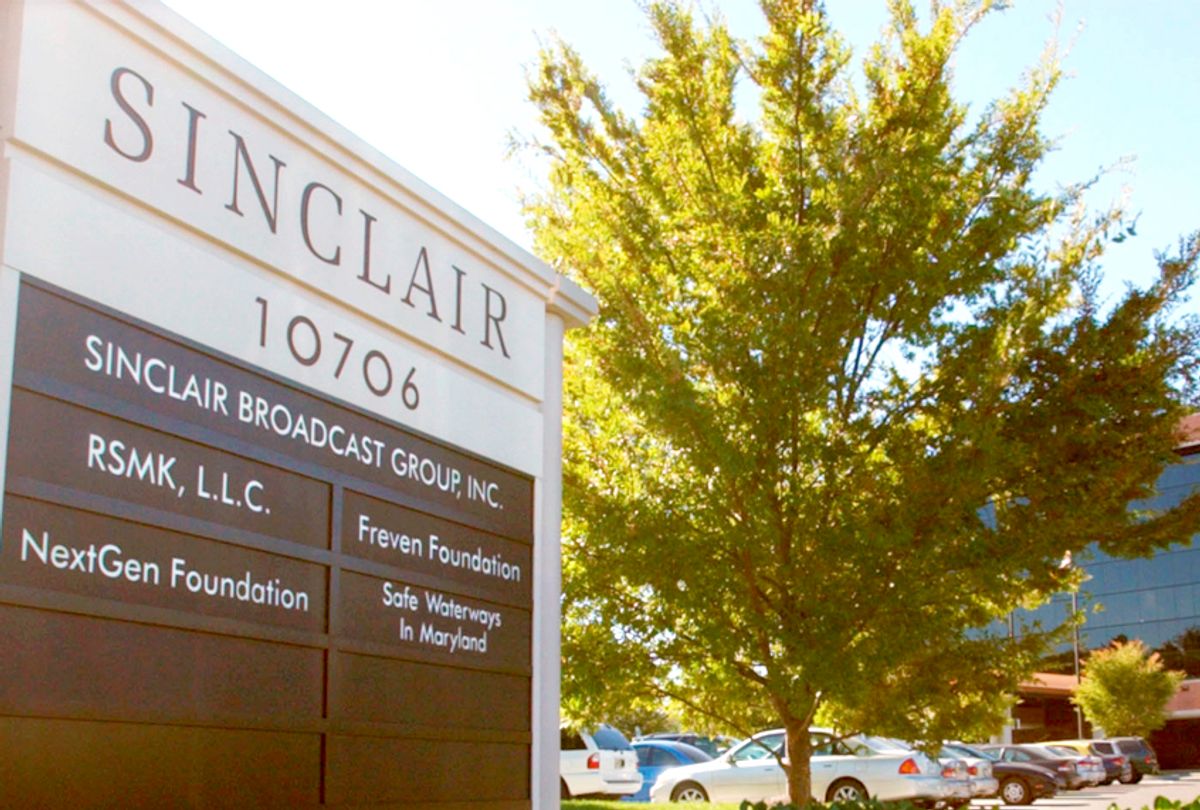In a move that has drawn ire and awe from media ethics experts, Sinclair Broadcast Group has asked its top executives, including news directors, for donations to the company's political action committee.
"Please take the time to evaluate the importance that the Sinclair PAC can have towards benefiting our company and the needs of the industry as a whole," the solicitation letter sent to employees by Sinclair's vice chairman David Amy, the Washington Post reported. Amy is also the chairman of the company's PAC.
The company is asking some of its managerial employees to help its efforts in fighting for deregulation and specifically to help keep a rule that was restored by the Republican-controlled Federal Communications Commission last April, the Post reported. In the past, Sinclair has been able to snub the FCC and come away clean.
The arcane rule allows "station groups to fall within media ownership limits," which in turn only emboldens companies own as many stations as possible.
Sinclair is already the largest single television station owner in the United States, and appears to have no intentions of slowing down anytime soon. The company is currently in the midst of a highly controversial $3.9 billion acquisition of Chicago-based Tribune Media, which would give it a total of 233 television stations and would reach 72 percent of households in the U.S.
"I’ve never seen anything like this. They certainly have the right to do it, but it’s blatantly unethical," Lewis Friedland, a journalism professor at the University of Wisconsin and former television news producer, told the Post. He added that Sinclair's solicitation "violates every standard of conduct that has existed in newsrooms for the past 40 or 50 years."
Sinclair has said its soliciting efforts had nothing to do with pressure and that "participation is completely voluntary."
"There is no corporate pressure to participate and no consequence for not participating. It doesn’t put them in any ethical bind whatsoever," Sinclair's vice president of strategy and policy, Rebecca Hanson, told the post.
However, Amy's letter made the PAC's efforts quite clear, and its stoked fears that it could impact the company's news directors to feel obligated to donate, or cover issues like deregulation with a bias.
"Since the change in administration last year, we now have an FCC Chairman who appreciates the role of local broadcasting enough to launch a number of politically unpopular deregulatory initiatives necessary to ensure the future of our industry," Amy's letter said, according to the Post. "In response, there have been Congressional efforts to counter these actions, such as a legislative proposal to [limit station ownership], which will prevent any broadcaster from meaningful growth in the future. . . . We need allies in Congress who understand the role of local television and who are willing to defend it in today’s ever-changing landscape."
Sinclair already has a troubling trend of conservative partisanship, and coverage friendly to President Donald Trump, so concerns over news directors contributing to the company's lobbying efforts are certainly warranted. In December of last year, the FCC fined the broadcaster $13.4 million for failing to disclose to its viewers that a series of advertisements, designed to look like the news, was not actually news. Sinclair has also donated thousands of dollars to lawmakers, predominantly Republicans, according to the Center for Responsive Politics.
The company was also blasted in a viral segment by late-night comedian John Oliver, who detailed Sinclair's hard-right leaning and must-run segments pushed by political analyst Boris Epshteyn, a former senior adviser to the Trump campaign.



Shares